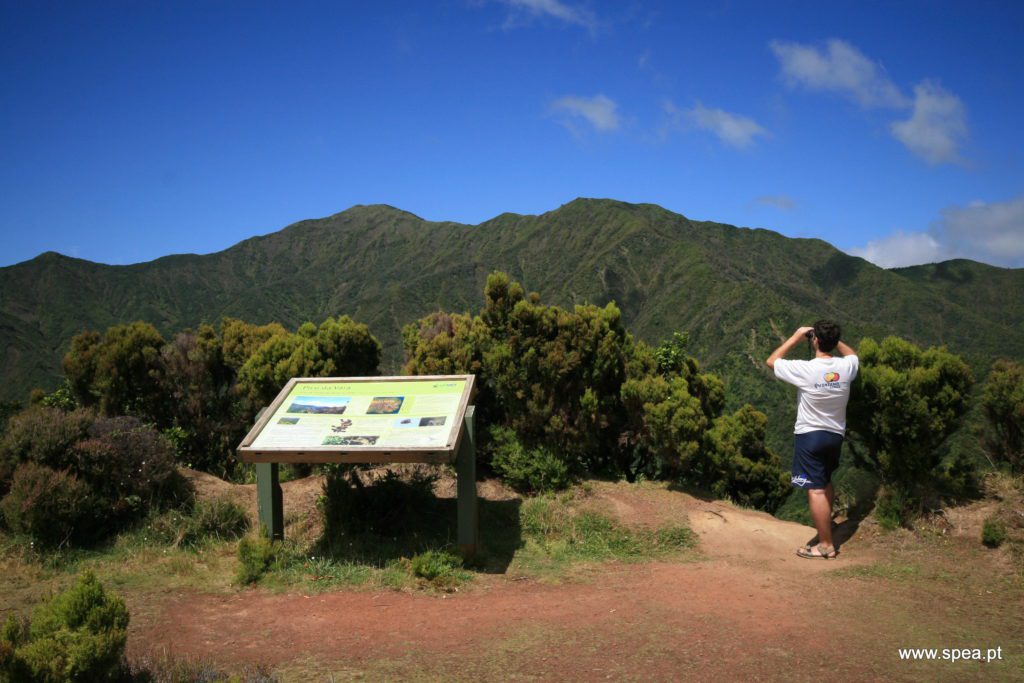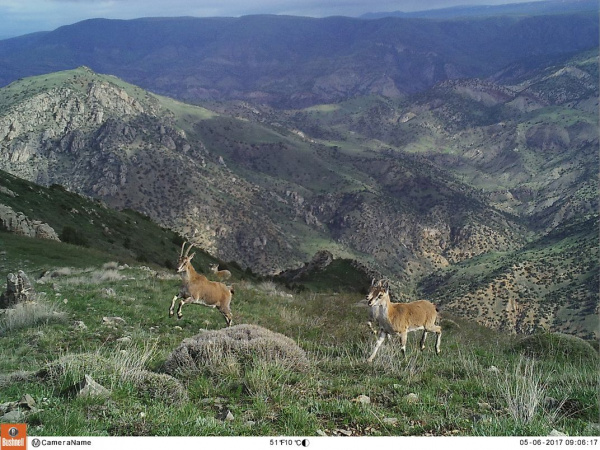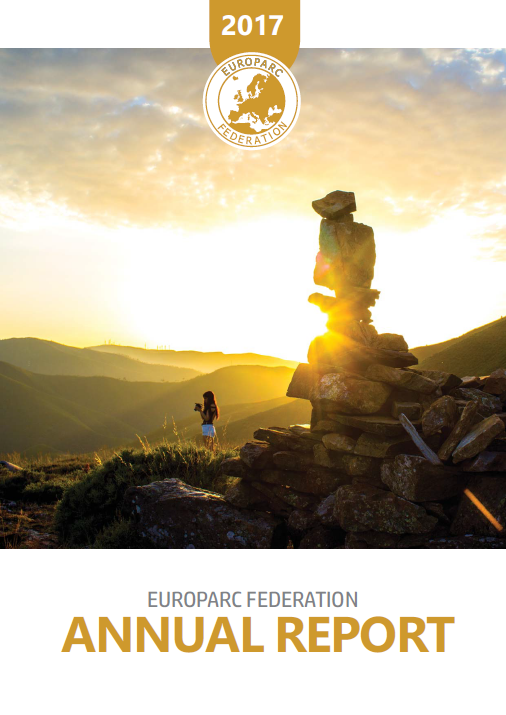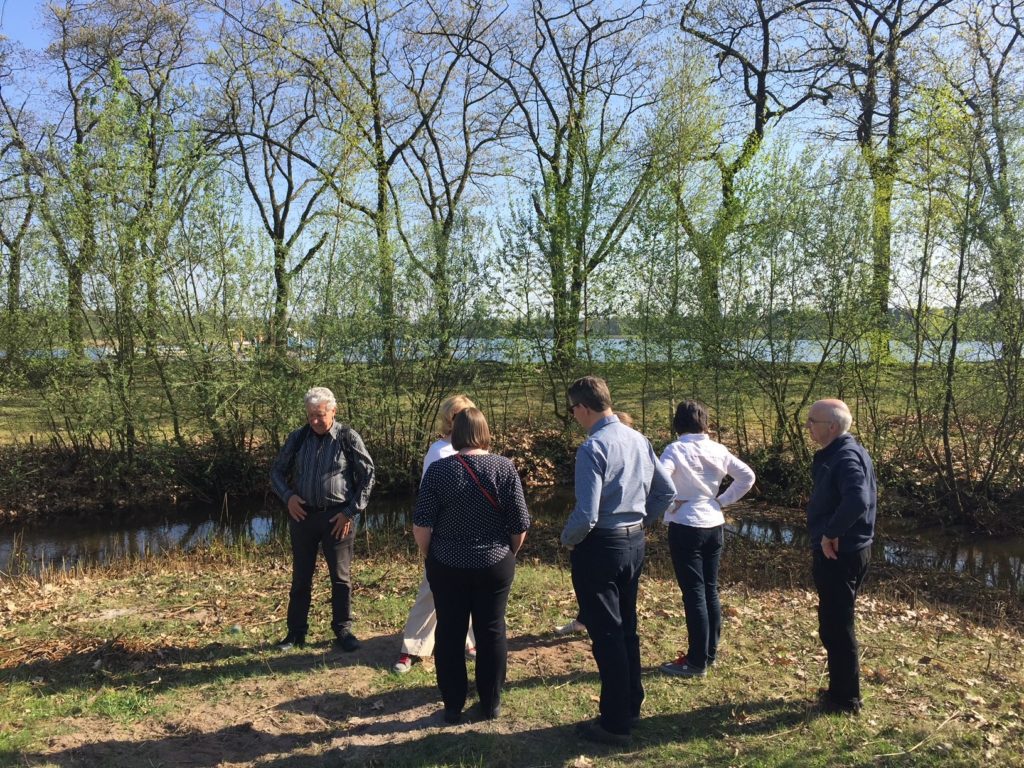Webinar: Solutions for European Protected Areas
On the European Day of Parks, 24th May, EUROPARC and PANORAMA Solutions come together to celebrate “Solutions from European Protected Areas“.
Webinar: Solutions from European Protected Areas
- 24th May – 11:30 CEST
- (Central Europe Summer Time)
- Duration: 1:15hours
- Register here
With this PANORAMA webinar, jointly hosted by EUROPARC and IUCN, we will promote examples of successful approaches from 2 different regions in Europe. Following introductions on the PANORAMA initiative, two solution providers (names and countries to be announced soon) will introduce their case studies and explain the key aspects that made them work. Participants will have the opportunity to ask questions and engage in a lively debate with the presenters.

PANORAMA – Solutions for a Healthy Planet is a partnership initiative to document and promote examples of inspiring, replicable solutions across a range of conservation and sustainable development topics, enabling cross-sectoral learning and inspiration. PANORAMA allows practitioners to share and reflect on their experiences, increase recognition for successful work, and to learn with their peers how similar challenges have been addressed around the globe. Solutions are being promoted through webinars, workshops, publications and other channels.
PANORAMA is a joint initiative of GIZ, IUCN, UN Environment, GRID-Arendal, Rare and IFOAM, with GIZ and IUCN in a leading role, but is principally open for solution contributions by any institution. All solutions can be accessed on the PANORAMA web platform: www.panorama.solutions.
Marie Fischborn will open the webinar with a presentation about the PANORAMA Solutions. Marie is with the Global Protected Areas Programme of the International Union for Conservation of Nature (IUCN). She is IUCN’s coordinator for the PANORAMA – Solutions for a Healthy Planet initiative on promoting and sharing successful approaches in conservation and sustainable development conservation and sustainable development , and leads IUCN’s business line on ‘protected area solutions’.
Case Study 1
Lands of Priolo: Integrated management to save a bird, recover natural habitats and promote sustainability
by Azucena de la Cruz, SPEA (BirdLife Portugal)

Terras do Priolo, photo by Joaquim Teodósio
The Azores Bullfinch Pyrrhula murina, Priolo in Portuguese, is one of the rarest and most endangered birds in Europe and can only be found in the east of the island of São Miguel, Azores. For the last 15 years, habitat restoration and other conservation actions have been conducted on the Special Protected Area (SPA) where this bird is found. These projects have had excellent results for the conservation of this bird, improving its status from “critically endangered” to “vulnerable”, and recovering unique habitats: laurel forest and peat bogs.
Management strategy included maximizing positive local socio-economic impacts, like job creation, expenses, educational opportunities, infrastructure creation and ecosystem services provision. This positive local impact, as well as efforts to raise awareness, have turned this bird into a symbol. The “Lands of Priolo” are now working to develop sustainable tourism that contributes to conservation of natural resources and local development.
Azucena de la Cruz is Co-Head of the Azores Department at SPEA (BirdLife Portugal). Graduated in Environmental Sciences and with postgraduate studies in Public Participation and Citizenships, Azucena is working with the Portuguese Society for the Study of Birds in Azores since 2016 having developed studies on Ecosystem Services and Management implications and coordinated the application of the “Lands of Priolo” to the European Charter for Sustainable Tourism.
Case Study 2
Caucasus Wildlife Refuge: Pioneering Private Conservation in Armenia
by Eva Martirosyan, Foundation for the Preservation of Wildlife and Cultural Assets, Armenia

During the Soviet times, various ecosystems were largely affected by the mismanagement, large regulated and unregulated forest cuts, aggressive industrialization and agricultural development practices. The “visual assessment” and centralization approaches of the time did not allow Armenia to create inventory and monitoring techniques appropriate to the specific type of lands and management objectives, or to develop local expertise and infrastructure to monitor its land resources.
The independence years in Armenia have seen political violence and several economic shocks, imposing tremendous pressures on the forests as sources of energy and illegal income. Urban sprawl, tourism, illegal hunting and unregulated grazing have greatly impacted the nature reserves.
Establishment of the FPWC’s work started as a response to an immediate need to implement sustainable management approaches that are compatible with the new environmental, economic and socio-cultural developments of the country.
The webinar will be held in English and participation is free. You can register here. See the past EUROPARC webinars.
EUROPARC Annual Report 2017
The EUROPARC Federation Annual Report 2017 is now available for download in English, German and French. The Report provides a clear view of how we are working to achieve a “Sustainable Nature, Valued by People“, through the implementation of the EUROPARC Strategy 2015-2021.
Travel across our four priority areas and discover the activities and projects that the Federation undertook in 2017. In particular, the policy work we do to in Brussels highlighted in blue throughout the report.
In 2017, we successfully undertook new challenges and engaged in new opportunities, advancing the implementation of EUROPARC Strategy 2015-2021.
wrote Ignace Schops on his welcome message to the Annual Report 2017, congratulating all those who have contributed to the work delivered by the Federation: Sections, Directorate and Commissions.
2017 was also a year of change within EUROPARC, with the election of the new Council members, the re-election of Ignace Schops as EUROPARC President, and the official integration of FEDENATUR into the Federation, at EUROPARC General Assembly in the Portuguese Magic Mountains.
Download the full report in English, German or French.

The EUROPARC Annual Reports from previous years are available for download from EUROPARC Library.
Quarrying and Protected Areas: the first meeting with Sibelco
First meeting organised by EUROPARC and Sibelco on quarying in and around Natura 2000 sites. Belgium, April 2018
Quarrying and Protected Areas: Towards a new partnership for Biodiversity
In todays’ society we are dependent on the extraction industries much more than we ever realise. By their very nature, quarrying, of all kinds, does have a negative impact on the landscape and on biodiversity. This is particularly relevant when the extraction happens within or nearby protected areas and Natura 2000 sites.
The Action plan for nature, people and the economy launched by the European Commission in 2017, requires a wider involvement from multiple industries, outside of the environmental and protected areas world, if we are to reach the aims of halting and reversing biodiversity loss and the improvement of climate resilience and mitigation (see Action 8.C). Further, the European Commission is now reviewing the guidelines for non-energy extracting activity in Natura 2000 to promote good practice and encourage the development of innovative partnership models.
Yet a growing number of companies are now ameliorating negative effects and reinstating or establishing new sites of value for biodiversity. Sibelco is one such company and has come to EUROPARC and our members, to share expertise and knowledge to help understand the challenges and opportunities and develop new partnerships, in a bid to benefit biodiversity.
EUROPARC has teamed up with Sibelco to look particularly at a closer cooperation with non-energy mineral extractive industry to promote best practice in land management and restoration within protected areas and Natura 2000 sites.
In order to understand the challenges and opportunities of mining in PAs and to develop new partnerships, Sibelco and EUROPARC have organised a joint workshop that took place on the 18th-19th of April, in Belgium. Two days of very productive learning exchange with the participation of representatives from Sibelco national units in charge of sustainability and protected areas managers responsible for extractive activities in their areas.

Case studies from the Peak District National Park (UK), the Grand Parc Miribel Jonage (FR), the Parc Natural Serra de Collserola (ES) were presented and issues concerning restoration, habitats modification, site management and dialogue with stakeholders widely discussed.
Further steps
It was clear that this was a preliminary meeting and the following actions conclusions for future action were agreed:
– The need to identify a list of overlapping Sibelco mining sites and EUROPARC Protected Area members.
– From within the overlapping sites list, establish a working group that would bring together protected areas managers and quarrying managers. The objective of this group would be to identify key challenges and propose solutions mainly focusing on: tools to improve governance and partnerships between mining sector and PAs; sustainable management of mining activities in PAs and on restoration plans. The group would also be a platform for learning exchange and possibly develop guidelines for other sites across Europe.
– Still, to establish this group and to make it run, funds are necessary: need to identify possible resources, if from the private sector or applying for European funds with specific projects.
– Invitation to Sibelco to attend the EUROPARC Conference 2018: an opportunity to present Sibelco to EUROPARC network and directly share some information.
– Once we have a more clear plan of actions we can consider to come to a specific partnership agreement among our two organisations.
– Other aspects that were discussed and can be considered for further joint work: support for the management of Sibelco assets and learning exchange/trainings/ capacity building for Sibelco managers/staff.
If you have expertise and interest in this topic, contact us to f.minozzi @ europarc.org.
We are looking for a Super Intern!
Internship in Communications
- Location: Regensburg, Germany
- Duration: 6 months (longer internships can be considered
- Deadline for applications: 16th May

The EUROPARC Federation is currently looking for a full time intern in its Communications department in Regensburg (DE). The intern will contribute to enhance the organisation’s outreach and communications activities and will support EUROPARC Communications with operational and administrative tasks.
The candidate must have strong writing skills – able to create and deliver messages through a variety of media channels for internal and external stakeholders – and good knowledge of digital communication tools. The position requires good IT skills, good organisational and multitasking abilities as well as attention to details.
The intern will have the opportunity to contribute directly to the work of a wide European environmental organisation, working along with an international team. The intern would have the chance to further develop communication skills, to learn about EUROPARC Federation and its programmes, and to discover from closer the functioning of European Protected Areas and EU environmental policies.
The applicant must be an enrolled student (preferably EU and EEZ citizen) who is required to complete a mandatory internship in order to finish their studies. During the whole period of internship, the candidate must have a confirmation from the University that he/she is a full time enrolled student. Candidates with the ERASMUS + Internship are also accepted.